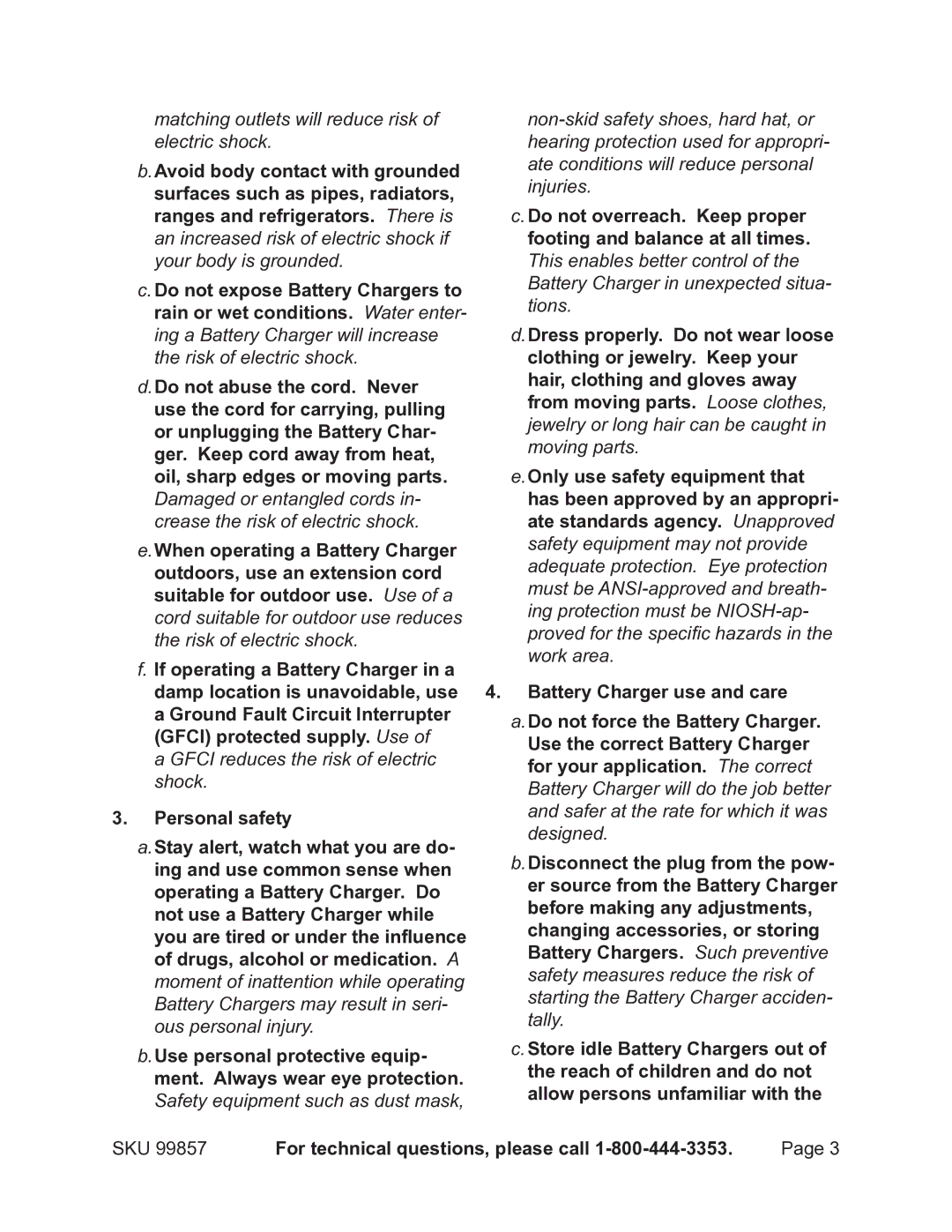matching outlets will reduce risk of electric shock.
b.Avoid body contact with grounded surfaces such as pipes, radiators, ranges and refrigerators. There is an increased risk of electric shock if your body is grounded.
c.Do not expose Battery Chargers to rain or wet conditions. Water enter- ing a Battery Charger will increase the risk of electric shock.
d.Do not abuse the cord. Never use the cord for carrying, pulling or unplugging the Battery Char- ger. Keep cord away from heat, oil, sharp edges or moving parts.
Damaged or entangled cords in- crease the risk of electric shock.
e.When operating a Battery Charger outdoors, use an extension cord suitable for outdoor use. Use of a cord suitable for outdoor use reduces the risk of electric shock.
f.If operating a Battery Charger in a damp location is unavoidable, use a Ground Fault Circuit Interrupter (GFCI) protected supply. Use of
a GFCI reduces the risk of electric shock.
3.Personal safety
a.Stay alert, watch what you are do- ing and use common sense when operating a Battery Charger. Do not use a Battery Charger while you are tired or under the influence of drugs, alcohol or medication. A moment of inattention while operating
Battery Chargers may result in seri- ous personal injury.
b.Use personal protective equip- ment. Always wear eye protection. Safety equipment such as dust mask,
c.Do not overreach. Keep proper footing and balance at all times. This enables better control of the
Battery Charger in unexpected situa- tions.
d.Dress properly. Do not wear loose clothing or jewelry. Keep your hair, clothing and gloves away from moving parts. Loose clothes, jewelry or long hair can be caught in moving parts.
e.Only use safety equipment that has been approved by an appropri- ate standards agency. Unapproved safety equipment may not provide adequate protection. Eye protection must be
4.Battery Charger use and care
a.Do not force the Battery Charger.
Use the correct Battery Charger for your application. The correct Battery Charger will do the job better and safer at the rate for which it was designed.
b.Disconnect the plug from the pow- er source from the Battery Charger before making any adjustments, changing accessories, or storing Battery Chargers. Such preventive safety measures reduce the risk of starting the Battery Charger acciden- tally.
c.Store idle Battery Chargers out of the reach of children and do not allow persons unfamiliar with the
SKU 99857 | For technical questions, please call | Page 3 |
